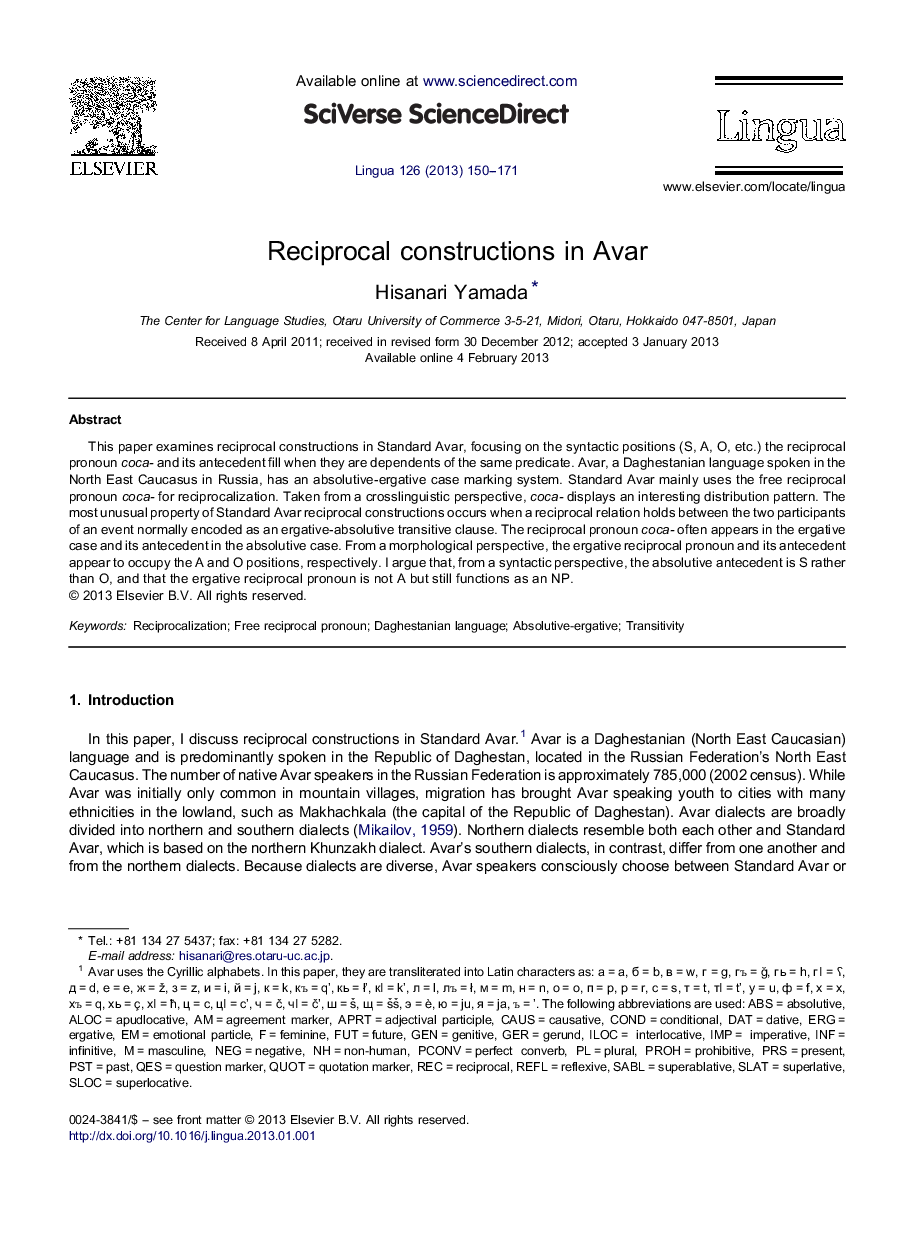| Article ID | Journal | Published Year | Pages | File Type |
|---|---|---|---|---|
| 935727 | Lingua | 2013 | 22 Pages |
This paper examines reciprocal constructions in Standard Avar, focusing on the syntactic positions (S, A, O, etc.) the reciprocal pronoun coca- and its antecedent fill when they are dependents of the same predicate. Avar, a Daghestanian language spoken in the North East Caucasus in Russia, has an absolutive-ergative case marking system. Standard Avar mainly uses the free reciprocal pronoun coca- for reciprocalization. Taken from a crosslinguistic perspective, coca- displays an interesting distribution pattern. The most unusual property of Standard Avar reciprocal constructions occurs when a reciprocal relation holds between the two participants of an event normally encoded as an ergative-absolutive transitive clause. The reciprocal pronoun coca- often appears in the ergative case and its antecedent in the absolutive case. From a morphological perspective, the ergative reciprocal pronoun and its antecedent appear to occupy the A and O positions, respectively. I argue that, from a syntactic perspective, the absolutive antecedent is S rather than O, and that the ergative reciprocal pronoun is not A but still functions as an NP.
► Standard Avar mainly uses the free reciprocal pronoun coca-. ► Coca- often appears in the ergative case with its absolutive antecedent. ► Constructions with coca- in the ergative form are syntactically intransitive. ► The ergative form of coca- functions as an NP.
